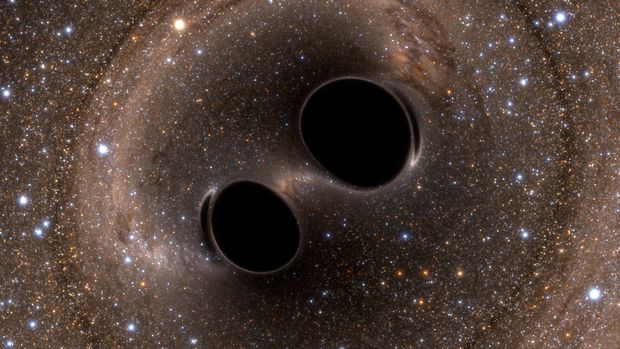
U.S. scientists Rainer Weiss, Barry Barish and Kip Thorne won the 2017 Nobel Prize for Physics for their pioneering role in the detection of gravitational waves, prize organisers said on Tuesday.
Ripples in the fabric of space-time first predicted a century ago by Albert Einstein, gravitational waves sparked a revolution in astrophysics when their first detection was announced early last year.
The teams involved in the discovery quickly emerged as favourites for Tuesday's prize.
"This is something completely new and different, opening up unseen worlds," the Royal Swedish Academy of Sciences said in a statement announcing the winners of the nine million Swedish crown ($1.1 million) award.
"A wealth of discoveries awaits those who succeed in capturing the waves and interpreting their message."
Triggered when super-dense black holes merge, the waves were detected using laser beams at the Laser Interferometer Gravitational-Wave Observatory (LIGO).
"The signal was extremely weak when it reached Earth, but is already promising a revolution in astrophysics," the Academy said.
Physics is the second of this year's crop of Nobel Prizes and comes after Americans Jeffrey Hall, Michael Rosbash and Michael Young were awarded the Nobel Prize for Physiology or Medicine on Monday.
The prizes for achievements in science, literature and peace were first awarded in 1901 in accordance with the will of Swedish business tycoon Alfred Nobel, who bequeathed much of the fortune he generated from his discovery of dynamite.
Among the science prizes, physics has often taken centre stage with laureates including scientific super stars such as Einstein, Niels Bohr and Marie Curie, one of only two women to win a Nobel Prize for Physics.
Weiss won half the prize with Barish and Thorne sharing the other half.
Uncommon Knowledge
Newsweek is committed to challenging conventional wisdom and finding connections in the search for common ground.
Newsweek is committed to challenging conventional wisdom and finding connections in the search for common ground.
About the writer
To read how Newsweek uses AI as a newsroom tool, Click here.








